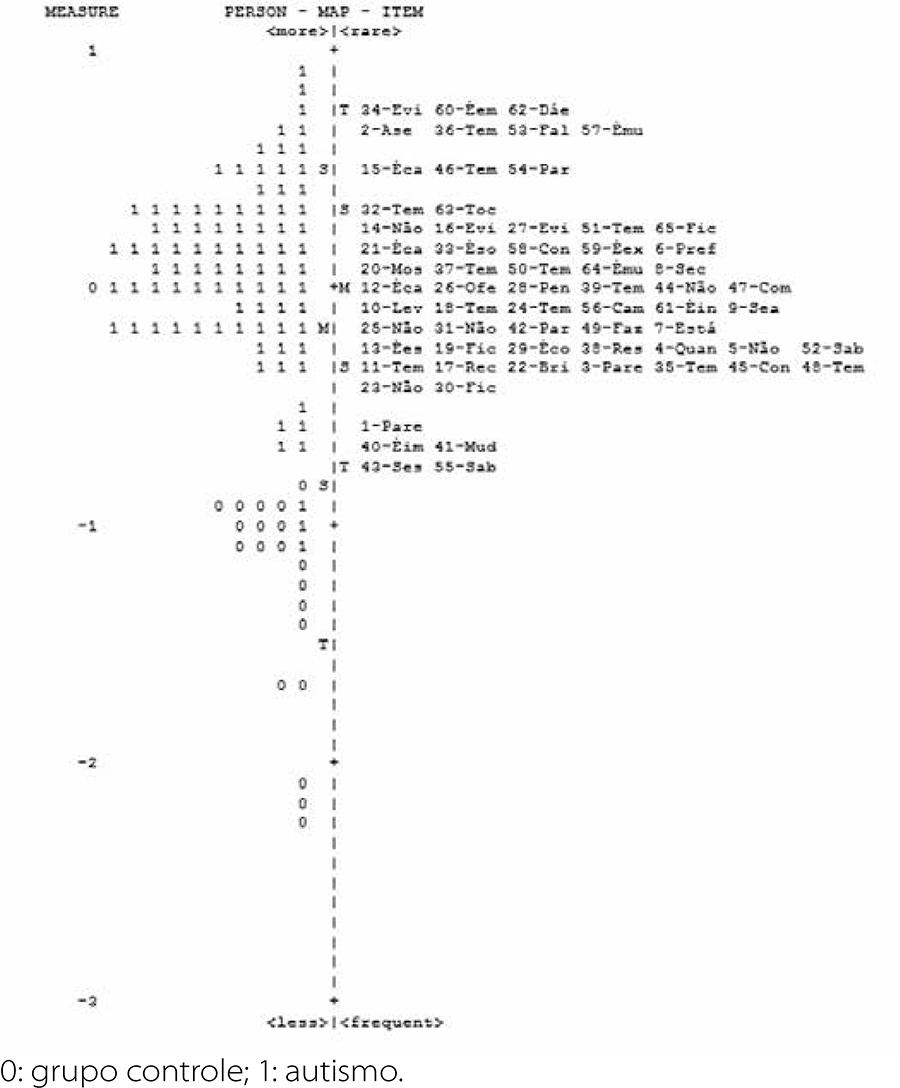Objective
The purpose of this research was to assess the psychometric properties of the Portuguese version of the Social Responsiveness Scale-2 (SRS-2) for children and adolescents with autism spectrum disorder (ASD).
Methods
Parents of 90 patients with ASD and 25 healthy controls responded to the SRS-2. Analyses about the discriminant validity, reliability and separation indexes, fitness and items calibration according to Rasch model were carried on.
Results
SRS-2 showed good internal consistency (Cronbach's alpha = 0.952), a cutoff score of 41, sensitivity of 96.8%, specificity of 100%, and negative predictive value of 99.9% for the diagnosis of ASD. The subscales generally fitted the model. However, some items presented suboptimal statistics performance (negative item-total correlation and misfitting). The item map showed that the latent variable was not entirely covered by the items, especially on the mildest end of the autistic spectrum.
Conclusion
The results of this study showed that the Portuguese version of SRS-2 can be used as a screening tool to improve the recognition of ASD in Brazilian children and adolescents. The scale might have improved versions in the future with the substitution of items with worse performance.
Autistic disorder; diagnosis; psychometrics; reproducibility of results


